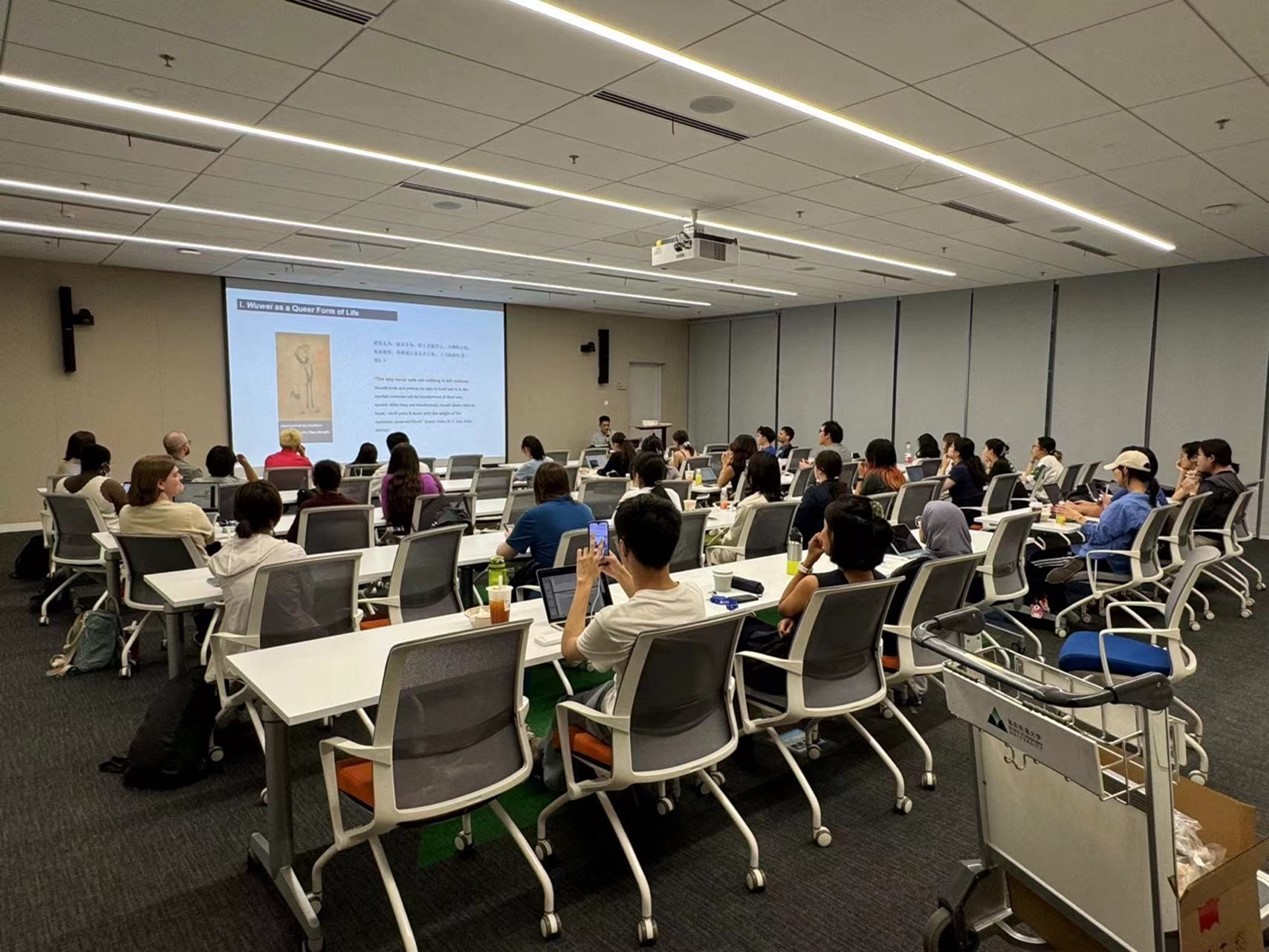
By Zu Gan, Class of 2025
On the 27th of August 2024, the HRC’s Gender Studies Initiative and the CSCC’s Meanings, Identities, and Communities Cluster co-sponsored a workshop and a talk by Hu Ying. Hu Ying is a PhD Candidate in Literary Studies from the Department of English, Linguistics and Theater Studies, National University of Singapore. There were over 50 people and 3 faculty in attendance across both events.
The workshop with students was held informally to encourage lively discussions between the speaker and DKU students. Hu Ying started by sharing his own academic journey. He highlighted how he first started learning about queer theory during his undergraduate studies. This soon morphed into a “learning trouble” for him at graduate school because of the realization that the theories he was learning were the other’s trouble. This led him to seek ways in queering queer theory as well. Besides sharing on his own personal journey, Hu Ying also answered questions from students on life in academia as well as pursuing studies in Singapore.
After the workshop, Hu Ying delivered a talk on “Queering Zhuangzi’s Wuwei Towards a Politics of Spontaneous Life.” He covered a critical exploration of the intersections between queer theory and traditional Chinese philosophy, particularly through the lens of Zhuangzi’s concept of wuwei (non-action). Hu Ying presented a nuanced discussion on how Zhuangzi’s philosophy, with its emphasis on spontaneity, non-interference, and living in accordance with the Dao (the Way), can offer an alternative framework for understanding queer life beyond the confines of neoliberal and liberal social norms.
He started his talk by introducing the combination of “flat refusal” (tangping) with queer liberalism. He explained the meaning of wuwei and applied it to a queer form of life. By using the film “Spring Fever,” he presented queer desire as outside of neoliberal subjectivity and a queer spacetime of wuwei where a life’s social situatedness no longer matters. In addition, he emphasized sexual life through its material texture which is a queer posture of taking things as they are a function of desire.
One of the key points addressed was the idea of a “queer life” that transcended socio-political relevance. He proposed a reimagining of queer existence in a cosmological order that defies conventional Western paradigms. This perspective challenges the Western-centric views of queer theory, suggesting that Zhuangzi’s teachings could lead to a more inclusive and culturally diversified understanding of queer identities.
Hu Ying also raised questions about the potential of wuwei to foster a vision of queer Asia that is liberated from existing subjectivities and socio-political constraints. This idea was further expanded by discussing how wuwei could serve as a means to disrupt the normative frameworks of identity and belonging, offering a way of life that is more fluid, spontaneous, and less bound by rigid categories.
In conclusion, the lecture encouraged a rethinking of queer theory through the lens of Zhuangzi. Hu Ying suggested that such an approach could lead to a richer and more complex understanding of queer existence that is less tied to Western liberalism and more open to diverse cultural interpretations.